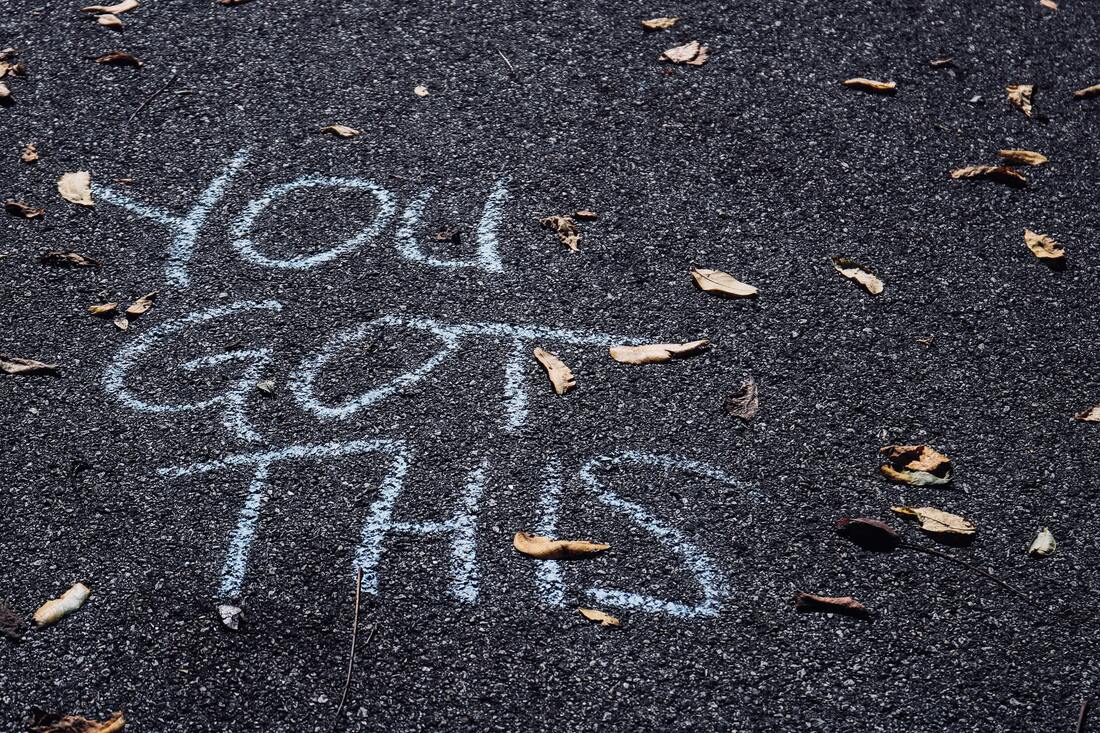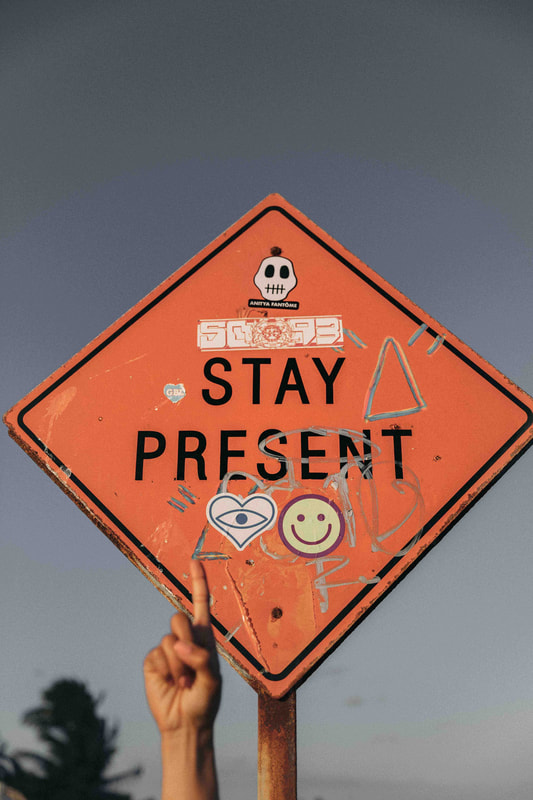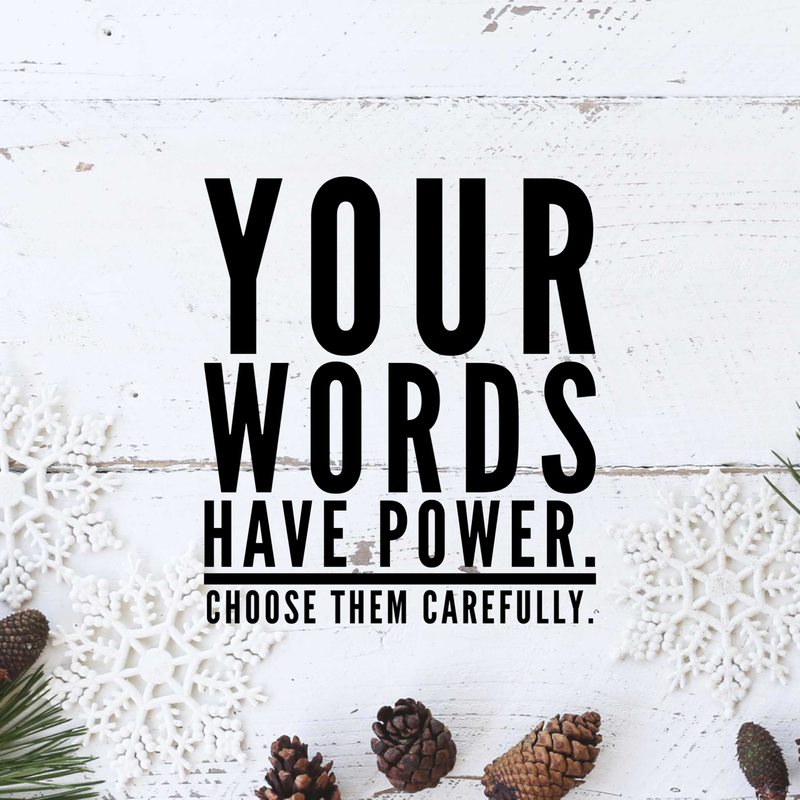|
“I don’t know why I’m here—my car just brought me here,” I said to the attendant at the parking lot entrance, who was as equally mystified with my greeting as I was about what I had just said.
“I was trying to get to Connecticut,” I quickly added, explaining that my GPS brought me directly to his station. “Next ferry is at 6:30 p.m.—it’s sold out but you can go on standby and see if you get on,” he said, without missing a beat. I thought for a moment. If I take the chance and don’t get on the ferry, I will have added more hours into an already long day. The Port Jefferson Ferry disembarks from its Long Island port and sails to Bridgeport, Ct., several times per day. My guess is many people use it to avoid the notorious traffic exiting Long Island, which is mind-boggling in its scale. My GPS told me it was going to take 4.5 hours to travel 90 miles via the highway at that point. Ugh. I hadn’t planned on taking the ferry but here I was. “Okay,” I said, and handed him my credit card and proceeded to the standby lot. The backstory: I was in Long Island for a workshop I was facilitating at Pal-o-Mine Equestrian, an amazing horse facility that offers many different types of equine facilitated learning, therapies, adaptive riding and much more. Take a few minutes and check out their site. They are doing tremendous work in their community. Although long and hot, the day had been wonderful with lots of terrific insights from the attendees. And I mean it was hot—the thermometer hovered around 93 degrees with full sun all day. So to say that I was tired is a bit of an understatement. And I was still wearing jeans in the blazing late day heat. It was about 5:30 p.m. at this point so I had an hour to wait. A little after 6 p.m. the dock crew started loading up the reserved cars. As I was waiting, I had been tempted to go to the ferry’s website to try to figure out, through rough math, if I would make it on the boat. I also thought about asking the attendant whether I could get a refund if I didn’t get on. I thought about checking the traffic on the highway. I considered whether I could take the next boat. But I decided not to do any of that. “If I’m supposed to be on that boat, I will be on that boat,” I thought to myself. Right about 6:20 p.m. they began loading the standby cars, but I still couldn’t fairly estimate whether my car might make it. I didn’t have to wait long. Within just a few moments, I was being motioned to drive forward. I can’t explain to you the wonderful feeling that came over at that moment. And as that winning lottery-feeling settled over me, I began to sift for the lessons the total experience. The questions started to perc up and they were mostly about what I hadn’t done. Why did I just flow with what happened? Why had I not even roughly sketched a plan b and a plan c? I had figuratively “dropped the reins” and by doing so, it had worked out beautifully. There was space for me, I was saving loads of time, and this ferry was taking me within 15 minutes, sans traffic, of my final destination. How often in life do we allow that type of flow? It’s counter-intuitive for most of us; we typically subscribe to the widely-held narrative of more, better, faster and then man-handle the process to get to the destination. To be sure, this story could have turned out quite differently, and that’s also part of the point, I believe. I took a chance that what was being offered WOULD be the best way, didn’t involve myself in the process and forced myself to not look for any alternatives until they were needed. It’s uncomfortable taking those types of chances. The mere possibility of things going sideways ruffles our feathers, so we assume captainship and steer hard. But this alternative way—this flow—had been demonstrated so clearly to me it was inarguable. Because I like to test theories, my lesson, as I understand it, is to now look for similar opportunities of allowing. I’ll have my map and my goals in mind, yes, but how I arrive? Maybe that’s not up to me.
1 Comment
What are you relentless about?
This is a curious question, isn’t it? On one hand, we could see this as a positive inquiry. For example, “I’m relentless about my family’s diet” or “I’m relentless about careful budgeting.” Both are positive points of focus, which would likely have good outcomes associated with them. But if we flip this around and pose the same question to other ways of being in our lives, things can get a little messy. “I’m relentless about my body image” or “I’m relentless with self-doubt.” These feel a little less affirming, don’t they? In fact, they feel kind judgy and maybe also a tad mean. But that tough talk works, right? If we just get a little harsher on ourselves, we really step up don’t we? Nope. That’s not been my experience. One of the most powerful tools we have at our disposal as human beings is compassion. We usually think of compassion as something we extend to others, which is wonderful and helpful. Compassion for someone else’s journey in this world is a key element of healthy human relationships and supportive communities. But how often do we gift that to ourselves? I want to distinguish here between compassion and pity. Pity is something that usually isn’t helpful and often can make the recipient feel his or her burden is even heavier. Compassion activates something different in people. It lightens the load by acknowledging that I, as the giver of compassion, can never really know what is to be that other person. It doesn’t minimize. It acknowledges, affirms, supports and hopefully, strengthens. Back to self-compassion. It’s much trickier to extend this to ourselves. It is, as the old saying goes, an inside job. So what does it look like in action? I’ll go back to the example above about being “relentless about body image.” The women in my age group grew up in a time where we were regularly exposed to images of women that, in hindsight, were likely overwhelmingly malnourished. Nonetheless, most women I know still hold those images as “ideals” of how women should look, whether it’s said out loud or not. A perfect size 4 is the only way to be. So how does that hold up for us today as we all grow a little older and a little thicker? Not very well. It’s a goal that was never and will never be reached. But it’s still held in awareness. It’s what we usually see when we get dressed in the morning. Too much pudge here and here and here…still. To me, understanding that this narrative was born in a different time helps me better understand it and work with it on a compassionate level. Of course I still see these "faults", these "not good enoughs"—that storyline is built into my brain from long, long ago. I see it all at a distance now though—something I know the roots of—which doesn’t make it either real or true. It’s a picture that was marketed to me. It’s a story. And I can re-evaluate the value of that story. If it’s valuable (which this isn’t), I’m allowed to keep it. If it’s worthless and counter-productive, I can disallow it. I can see it for what it is. The same process works with relentless self-doubt. I’ve never met anyone that was making good use of their own self-doubt. Humility is a different quality and it’s important. But self-doubt is worthless and typically based on a story someone else handed you at a key moment in your development that you inadvertently internalized. Like the body image example above, it was “marketed” to you and you bought it. Having compassion for the doubt narrative could look like this: You: “I feel good about the work I did on this project. I stretched where I could and I found my flow throughout the process and hit the deadline.” Self-doubt: “Really? You kinda stumbled through that last piece in the report didn’t you? Ohhhh wait til they catch the last changes you KNOW you missed. And the client will probably notice it first! And then…and then…” I’m exaggerating here but you get the point. You in self-compassion mode, looks like this: “Yes, I may have missed one or two of those last minute changes but I know I was diligent about checking. If there’s an issue, I’ll know. And I can handle the feedback I will get, even if it feels critical or personal. It may feel personal, but that's not about me. That's about the messenger. Whatever I learn in this I can apply to the next project.” Can you feel the differences here? Self-compassion mode isn’t defensive; but rather open and willing. And kind. Kindness counts here as much as anywhere. That undermining voice of self-doubt is a pretty far throw from kind and by its nature, makes one feel small and incapable. I want to encourage you to take a closer look at what you’re relentless about and question its veracity. What are its roots and does it hold value? Will it ever hold value? If not, then take a step back. Be curious but not judgmental. And then just let it go. Let me know how these ideas land with you. And if you have strategies that have worked for you, please share them with me, so I can share them as well. Heyyyyyy...
So wow, some week, huh? Interestingly, there's both a whole lot of noise and a notable quietness as well. I believe the quiet element is the global consideration of where we are, and where we want to go. It may not be articulated just that way, but I can feel it. People are considering things differently. And truth be told, there's much to consider--What does it all mean? What will be at the tail end of all this? More questions than answers right now but in my experience, one question always leads to yet another. And another. And yet another. The monsoon of questions can lead us into fearful places, so I wanted to offer just a few resources and ideas that will help navigate this time just a little bit better and gain some new insights as well. 1-Visit https://biomimicry.org/30days/ for a very cool nature-based journaling adventure leading up to Earth Day 2020. Not sure what biomimicry is? Check out https://www.youtube.co/watch?v=FBUpnG1G4yQ to learn more. 2-It's totally normal to feel anxious right now and there are many resources to help you work it through. EFT Tapping is a focused and effective alternative therapy to try out if you haven't already. This method has been around for a very long time and has solid research to back up its effectiveness. You can read about it here and try this 5-minute anxiety reducer. 3-I've mentioned him before but want to highlight him again. Guru Singh has one of the most interesting podcasts I've ever come across. He also offers inexpensive online classes on his site. If you're looking for something out of the ordinary yet somehow very uplifting and positive, check out his classes and podcasts. 4-You can enroll for free to learn about "The Science of Well Being" on Coursera.org offered by Yale University. I've had several people--some of which are clients--mention this to me so I thought I'd pass along to you. Check these out and put your brain to work on things you can do, rather than things you cannot do. I realize a lot of people are feeling unsteady these days, so I'd like to offer anyone I'm not currently working with a "Pay what you can" coaching session. No long-term commitments, no strings attached. Maybe you just need an hour to sift through some of what you're feeling right now. I can help with that. Email me to set up a time. And when I say "pay what you can," I mean exactly that. You'll know what works. Trust yourself. I know that not everyone tunes in for the Academy Awards, but we try to in our family. I missed parts of the evening this year but I caught the round up the next day. Most of it felt familiar and rather expected.
But one speech grabbed me. Hard. Joaquin Phoenix’s acceptance speech for Best Actor took my breath away for so many reasons. I so admire people that can be caught off guard, as the winners of the night typically are, and are able to deliver a coherent message in a very short amount of time. I believe it truly is a gift to be able to stand up and say something meaningful and resonant with little to no preparation. It’s amazing to witness. If you missed it or would like to check it out again, here is his full speech: https://www.hollywoodreporter.com/news/transcript-joaquin-phoenixs-speech-at-2020-oscars-1278278 A few words that jumped out at me: “I think that we've become very disconnected from the natural world, and many of us, what we're guilty of is an egocentric world view — the belief that we're the center of the universe. We go into the natural world, and we plunder it for its resources… And I think we fear the idea of personal change because we think that we have to sacrifice something, to give something up, but human beings, at our best, are so inventive and creative and ingenious. And I think that when we use love and compassion as our guiding principles, we can create, develop and implement systems of change that are beneficial to all sentient beings and to the environment.” Now, I have been, I have been a scoundrel in my life. I've been selfish. I've been cruel at times, hard to work with, and I'm grateful that so many of you in this room have given me a second chance. And I think that's when we're at our best, when we support each other, not when we cancel each other out for past mistakes, but when we help each other to grow, when we educate each other, when we guide each other toward redemption. That is the best of humanity.” His whole thought process stunned me as I watched. Humility at the beginning, deep reflection throughout and personal responsibility, and quoting some lyrics jotted by his late brother at the very end. Wow! How is someone able, at such a bright light moment, to articulate something so well and so eloquently? The cynics may say, “Well, he’s an actor and he’s acting.” But I don’t feel that. I feel like he’s someone that, by his own choices and for better or worse, has spent most of his life in a huge spotlight. The critics have been so cruel to him at times too, to a level that most of us non-celebrities couldn't endure. Which leads me back to perhaps the most important thought from all of this--we can never know how someone else is experiencing his or her life. What looks to us like prosperity, importance, ease, power, to name just a few lauded qualities, could feel quite different to the person having that experience. Moreover, what if we routinely engaged people with that thought in mind? Intentionally dropping our assumptions as we interact with others? What would you hear differently? How could that help someone be very seen, and very witnessed? How could that tiny act help that person in ways we’ll never know? To his point, “what we're guilty of is an egocentric world view — the belief that we're the center of the universe.” It’s human nature, this egocentrism, but we definitely can do better. We have the ability to be intentional on all fronts and to engage this world--all of it—with the compassion that is so necessary. Please join me in this human experiment, beginning today, on a day saturated with symbols of love. Let’s see what we can make better. Together. The holidays can be a tricky time for many people. Our brains tend to suggest that the past was better than it actually was, and that the future is bleaker than it will likely be. And because everything—EVERYTHING—is focused on holiday stuff right now, it’s easy to feel frazzled and overwhelmed. With that in mind, I want to offer you some tips to better navigate the season; these ideas are designed to help you get back to your center, regardless of what’s happening around you. 1-One word. I want you to choose one word, consciously and intentionally, that will serve as your personal bumper system throughout each day/week (or whatever time frame you select). The word you choose will serve to re-orient you in a moment-to-moment style. But it’s not just a matter of uttering the word; you’ll need to feel into the word you choose to expand its power and effectiveness in every interaction. Let me give you an example: Maybe the word you choose on day one of this exercise is “peace.” Later that morning at a staff meeting, you note one particular colleague is behaving passive aggressively toward you. You’ve had differences in the past, but your attention is drawn to him over and over and you can feel your ire rising. In the interest of productive meetings, you choke back your anger and retreat into seemingly endless internal dialogue about how he behaved and how you let him get away with it. You likely even find “allies” in this situation, co-workers that sympathize and side with you. Lines are drawn (mentally) and you rehearse ad nauseam what you might have said to stop what was happening. Of course at the next staff meeting, you’re locked and loaded. Just waiting for him to cross that line. Again. And on it goes. Now let’s put our word to work here. You chose the word peace, but peace exited the building as soon as you needed it. Instead, you hurdled into office drama that you didn’t invite or initiate. So what might you have done differently? The moment the energy changed (offender Number One went to work on your emotional safety by parrying and dodging throughout the meeting) you might have taken a deep breath, gone back to your word and considered, “How could ‘peace’ work in this situation? What’s my most peaceful possible response right in this moment?” Now this does warrant the intentional pause (remember, we’re responding, not reacting) a skill which takes some time to develop, so just be patient with yourself. In the scenario we’re examining, the “most peaceful response” might be something like this: “Hey Phil, it feels to me like you’re trying to make some point here, but I’m sort of confused on what that is. Can you help me better understand what you’re trying to say?” It’s critical that you come from a place of pure curiosity, not confrontation, as you pose the question, however. At that moment, it’s very easy to slide into attack and defend. So check that before you engage. Posing the question from a space of genuine curiosity begins a conversation of which you are 100 percent responsible for 50 percent of the total. I know, I know. It does feel easier at times to simply blast a person for his bad behavior and move on. And perhaps there are times when that is the best or quickest solution to mitigate an issue. But we’re looking here at how to keep you in your most peaceful place emotionally, so you’re in charge of how you’re experiencing each moment. We want to get off the blame train and take responsibility for our reactions to what others are doing or not doing. 2-Re-heated mashed potatoes are lethal. A mashed potato patty with scrambled eggs, your cheese of choice and served over a bed of spinach is a super healthy and yummy breakfast. But mashed potatoes heated in pan maintain their heat longer than eggs do. MUCH longer, in fact. The moment of contact will drop you to your knees as you attempt to dislodge the searing hot dense patty, which suddenly has the adhesion strength of Gorilla Glue, from your mouth while making indecipherable animalistic noises through your nose. It’s not a pretty sight and should this happen to you, I hope it happens away from any witnesses and out of earshot of your mother, grandmother, and anyone you might hold in high esteem. You’ve been warned. Consider it a public service reminder and you’re welcome. "Precision of communication is important, more important than ever, in our era of hair trigger balances, when a false or misunderstood word may create as much disaster as a sudden thoughtless act." ~James Thurber I’ve been a student of communication style and human interaction for most of my life. I remember being labeled “shy” as a kid—reticent to interact with people I didn’t know well. But I also know, because I remember it clearly, that I watched and listened. A lot. It felt important that I understood context in observing people. To get a handle on both what they were saying and what they weren’t saying.
And those observations led to lots of questions, much to my parents’ frustration, I’m sure. With that personal disclosure at the forefront, here are some ways to improve your own communication regardless of what your long-term style might be. 1-Listen to understand, not respond. This changes everything. Because of our hyper-connectivity, we’ve closed the gap on the pause. We’re bouncing info and words back and forth at a pace the world has never experienced before, which naturally leads to both miscommunication and confusion. Rather than really listening to what someone is saying, we’re busy waiting for the moment that we get to speak—which also means we’re not really understanding what the other person is communicating. Pay attention to this the next time you’re in conversation with someone and you’ll feel what I mean. It takes concerted effort and lots of practice to be an excellent listener, but it’s well worth the practice. 2-Ask questions. Don’t make assumptions about what’s being said because we’re all wired to be more vigilant about negativity than positivity. If you’re not sure, ask clarifying questions. Be the kind of person that seeks clarity at all times and in all ways. We’re all worried about looking stupid, so just let that go. I learned as a working reporter that people would much rather you ask that “stupid question” rolling around in your head than have you assume something and be wrong about it. 3-Seek commonality, not difference. The sages have said this for years—as humans, there’s more that binds us than separates us. Find that connection point and watch how much clearer and more authentic your interactions become. 4-Release the desire to perseverate on things. Some of the loudest places I’ve ever been are in my own head and much of what rolls around in there is, frankly, useless and pointless. Get real with this about yourself. Ruminating on things is a human tendency but the output is rarely helpful. Some things are just that—things, circumstances, events. You don’t need to analyze them in gory, repetitive detail. Put another way, “let it go.” Observe, learn, process and move on. 5-It’s never personal. People get into patterns of behavior. They communicate certain ways because those ways have paid off somehow in the past. If a person’s style of communication irks you, know that that style has worked out for them in some fashion. It’s not directly related to you and the shared circumstance you’re in. It’s not personal, so don’t make it so. Once you make it personal, you’ve created a blockade between you and that other person and you will seek evidence in the future to support your position/feelings and…on and on it goes. Get off that train now because the destination is less than fun. Always. 6-Be consistent. It’s my belief that there’s nothing more reassuring than someone who is consistent. I get that this takes a large degree of control and tact to make this your style, but the payoff is huge. Think about the people that you interact with regularly. Think about the ones that are consistent in style, form and manner and then think about the ones that make you feel like you’re walking on eggshells. You’re overly diligent about not triggering them so there’s always some degree of inauthenticity in your communication with them. With a little work, anyone can be consistent but a key ingredient is slowing things down. Asking for time when you need to consider something. And really being aware of how you’re occurring to other people. Not self-conscious, but self-aware. Aware of not just yourself and your actions, but also how others typically interact and react to you. Sidenote: If your own tendency is to be the second of the two styles I described above and it’s something you’ve decided to work on, here are some questions to ask yourself: What is your payoff in creating and recreating that type of interaction? Why do you want people you’re in relationship with off balance? Do you feel more “in control” when others are unsteady? Why? Does it empower you in some way? Not judging, just asking. Once you understand something about yourself fully, you’re better able to own it and then change it. Put some of these ideas to work, and I’d encourage you to spend more time just observing—without judgement—the interactions of your daily life—your own included. Trust your senses about what you’re seeing and feeling—those abilities are there to help you but must be utilized to affect any understanding and perhaps, if you choose, change. If you think you could use some help on this, I am happy to assist. And when you try out some of these tips, please let me know how they worked out. Let’s keep the conversation going, shall we? Your words have intention and power. Every minute of every day. Are you using them against yourself? Against others? Against whatever you're going through or heading toward?
Use your words to support, care and heal. Because we need more kindhearted souls--that's obvious isn't it? Just as an experiment, pay close attention to your words today, both spoken and internal. Speak the things you want to see and then notice how you feel--and how you treat others. Be THAT person today. "I know not what the future holds, but I know who holds the
|
Author
personal development and Equus coach, former Penn State journalism instructor and professional writer. Archives
June 2021
Categories
|









 RSS Feed
RSS Feed